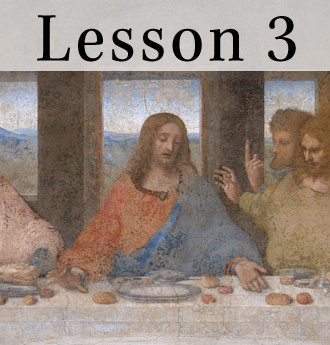Lesson 3: What Historical Developments Influenced Modern Ideas of Individual Rights?
Discourses on Livy--Niccolo Machiavelli
Machiavelli's early work on the benefits and structure of a republican government.
Link: http://www.constitution.org/mac/disclivy_.htm
New Atlantis--Francis Bacon, 1627
From Wikipedia: Released in English in 1627, this utopian novel was Bacon's creation of an ideal land where "generosity and enlightenment, dignity and splendor, piety and public spirit" were the commonly held qualities of its inhabitants.
Link: http://www.fordham.edu/halsall/mod/1627bacon-atlantis.html
Ninety-Five Theses on the Power and Efficacy of Indulgences--Luther, 1517
Luther used these theses to display his displeasure with some of the Roman Catholic clergy's abuses, most notably the sale of indulgences; this ultimately gave birth to Protestantism.
Link: http://en.wikisource.org/wiki/95_Theses
Of Commerce--David Hume, 1752
Hume's essay on the ways politics and economics overlap.
Link: http://bit.ly/1GhgT
Abolition of Star Chamber
The Star Chamber was a court that heard criminal and civil cases against prominent Englishmen, who, it was believed, would not receive a fair trial in the regular courts. In 1641, it was abolished by Parliament after controversial incidents with religious dissenters.
Link: http://www.lonang.com/exlibris/organic/1641-asc.htm
Adam Smith--Wealth of Nations, 1776
Adam Smith's view on the state of economics during the Industrial Revolution as well as his thoughts on free market economies.
Link: http://www.econlib.org/library/Smith/smWN.html
Contract For Quarrying & Dressing Stone, 1248
Contract between two parties regarding stone quarrying work.
Link: http://www.fordham.edu/halsall/source/1248stone.html
Declaration of Independence 1776
From Wikipedia: The United States Declaration of Independence is a statement adopted by the Continental Congress on July 4, 1776, which announced that the thirteen American Colonies then at war with Great Britain were now independent states, and thus no longer a part of the British Empire.
Link: http://www.ushistory.org/declaration/document/index.htm
English Bill of Rights 1689
Act passed by the British Parliament in 1689 enumerating rights of British subjects and residents.
Link: http://avalon.law.yale.edu/17th_century/england.asp
Federalist No. 37
From Wikipedia: Federalist No. 37 is an essay by James Madison, published on January 11, 1788 discussing some of the political questions raised at the Constitutional Convention, such as the question of the authority of the state versus the liberty of the people.
Link: http://avalon.law.yale.edu/18th_century/fed37.asp
Grant of a Gild to the Tanners of Rouen, 1170
A contract between King Henry II of England and the tanners of Rouen.
Link: http://bit.ly/Iegqg
Maryland Toleration Act, 1649
The Maryland Toleration Act, passed by the assembly of the Maryland colony, mandated tolerance for Christians who did not practice Anglican Christianity.
Link: https://bit.ly/2PHzlHq
Petition for a Charter of New England, March 3, 1619
A petition by the Northern Company of Adventurers to create a new settlement and local government in the area they designate as New England.
Link: http://avalon.law.yale.edu/17th_century/charter_002.asp
Thomas Hobbes--Leviathan, 1651
In Leviathan, Hobbes set out his doctrine of the foundation of states and legitimate governments--based on social contract theories.
Link: https://ebooks.adelaide.edu.au/h/hobbes/thomas/h68l/






